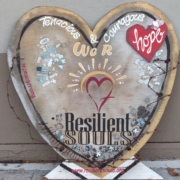Benefits of Integrating Yoga Into Postgraduate Mental Health Curriculums
As we find ourselves in a bit of a lull in the Covid-19 outbreak here in southern California, I have found my way back to teaching yoga in-person in a local yoga studio. My heart is full as I have greatly missed the opportunity to bring this healing modality back in-person to a larger audience. Yoga, including all of its contemplative practices, has been the largest tool in my self-care tool kit, even becoming my way of life over the years, and it is truly what kept me grounded in gratitude through the pain and chaos of the past two years. Although I may not have found myself on my yoga mat regularly, especially for those yummy 90-minute classes that include an extra long savasana shape at the end, I know how important these practices are for supporting our mind-body-spirit health. And, as a mental health provider, I know it is mission critical to prioritize our self-care practices in order to be fully present and prevent burnout. With increasing rates of burnout in mental health providers during the pandemic, the question becomes is it possible to integrate yoga into postgraduate curriculums for mental health providers to ensure the long-term wellbeing of such providers?
A recent research study took a look at including yoga into the curriculum for first-year mental health students to test the feasibility of such a proposal. Introducing such tools to all students in this setting ensures all mental health providers would have the first-hand knowledge and experience of the impact on their well-being before actually moving into the space of providing services to clients, where the stress level of the role only increases. Although the results of this research advocates for such a change to the curriculum, it only provided a brief, 15-day offering. It is my belief that offering longer curriculum based yogic interventions would not only provide more sustained self-care tools to the mental health provider but it would also equip the mental health provider with the skills to bring such self-care tools to their clients.





